Complete noob here learning c++ through an IoT project using Websocket. So far, somewhat successfully modified this example beast async_client_ssl to handshake with a server.
My problem is ioc.run() runs out of work and exits after the initial callback. I was having the same issue as this post two years ago. Boost.best websocket ios.run() exits after sending a request and receiving one reply
The answers from the linked post above were pretty simple (1. and 2.), but I still have no clue how to implement it.
1. Without reading your code, understand that the run() method terminates if there is no pending work. For instance, your read method needs to queue up a new read.
2. Move async_read() to a separate function, let’s say do_read(), and call it at the end of on_read()as well as where it currently is.
The person who asked the question in the post also seemed puzzled, but after these two answers, there was no further explanation. So, is there anyone who can kindly help me out, perhaps with a simple code snippet?
In on_read() in the code from some other noob's previous post, I added the async_read() like below.
void on_read(boost::system::error_code ec, std::size_t bytes_transferred)
{
io_in_pr34ogress_ = false; // end of write/read sequence
boost::ignore_unused(bytes_transferred);
if(ec)
return fail(ec, "read");
else
std::cout << "on_read callback : " << boost::beast::buffers(buffer_.data()) << std::endl;
// Clear the Buffer
//~ buffer_ = {};
buffer_.consume(buffer_.size());
ws_.async_read(buffer_, std::bind(&session::on_read, shared_from_this(),
std::placeholders::_1, std::placeholders::_2));
}
But no hope. ioc.run just terminates. So how to do the above 1. and 2. answers appropriately?
Thanks!
-----------------UPDATED on 10/25/2021-------------------
The answer from @sehe worked with the executor. I had to upgrade the boost version from 1.67 to above 1.7 (I used 1.74) to do so. This solved my issue but if someone has a working solution for 1.67 for the folks out there, please share the idea:)
